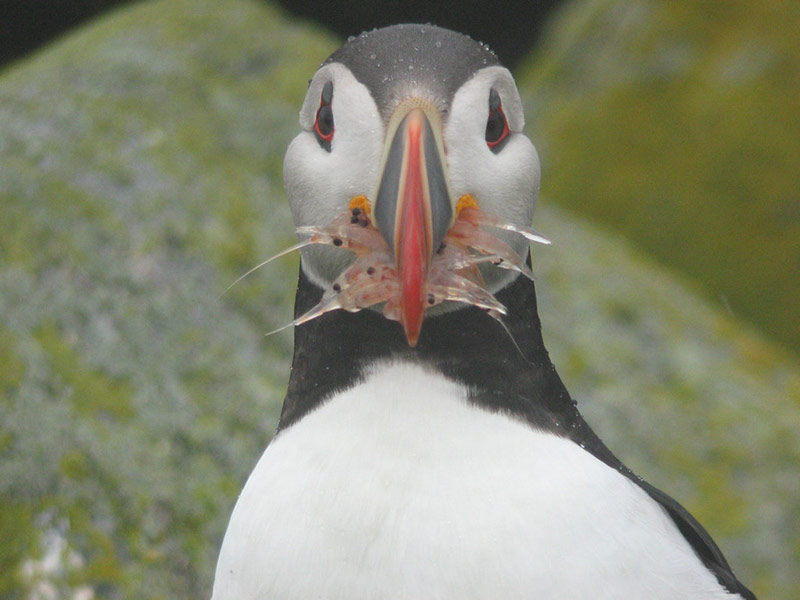UNB research published in top marine ecology journal
Author: UNB Newsroom
Posted on Sep 20, 2019
Category: UNB Fredericton

Researchers from University of New Brunswick’s Atlantic Laboratory for Avian Research (ALAR) find that seabirds have a lot to say about the state of oceans.
Their research was recently published in Marine Ecology Progress Series, one of the world’s most important marine journals. The article, which was written in collaboration with researchers from the Seabird Restoration Program at the National Audubon Society, examines long-term changes in the diet of seabirds nesting in colonies in the Gulf of Maine and their use as indicators of change in the marine ecosystem.
In their paper “Varied breeding responses of seabirds to a regime shift in prey base in the Gulf of Maine,” researchers analyzed the breeding success and diet of three species of seabirds: Atlantic puffins, razorbills and common murres. According to the authors, warming waters in the Gulf of Maine have reduced the availability of high-quality prey, such as herring, decreasing the reproductive success of sea birds. Larger species, like the razorbill and murre, require high-lipid fish to sustain their chicks when compared to puffins, but puffins were negatively affected by marine heatwaves – especially in 2012, 2013 and 2016.
For the purpose of the study, researchers examined breeding success, chick condition and chick diet composition at three colonies over 23 years. They concluded that the chick diets for both the puffin and razorbill species had changed with increasing temperature, especially in declines of herring and white hake, and increases in haddock and previously unseen fish species. These changes led to negative effects on several seabird breeding parameters. The murre dataset was too short to observe a change, as the researchers only began recording data in 2013.
Results from the study support the call for improved protections for forage fish populations.
"Winter temperatures appear to affect the birds’ overwinter food supply,” says senior author and UNB PhD candidate Lauren Scopel. “Fish are ectotherms, so increasing water temperatures increase the energetic demands of the juvenile fish that puffins eat, yet changing temperatures also change the dynamics of nutrient cycling and the balance of the plankton communities that these fish rely on.”
“Nutrients have less time to recycle overwinter and plankton communities shift to lower-lipid and smaller organisms, which make energy transfer less efficient,” she says. “At a time when juvenile fish need more energy than ever, it is becoming increasingly scarce, and that effect may now be showing up in our puffin population.”
“Our long-term studies on Machias Seal Island, and collaborations with seabird researchers throughout the Gulf of Maine, demonstrate the benefit of long-term studies and collaborations across borders,” says Dr. Tony Diamond, author and research professor in the faculty of biology at UNB Fredericton. “The ocean here is warming faster than in most parts of the world and the outlook for these cold-water seabirds is not encouraging unless CO2 emissions are reduced drastically in the very near future.”
Media contact: Angie Deveau
Photo credit: ALAR UNB
